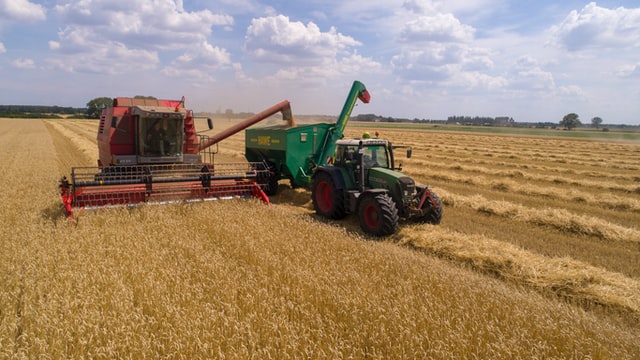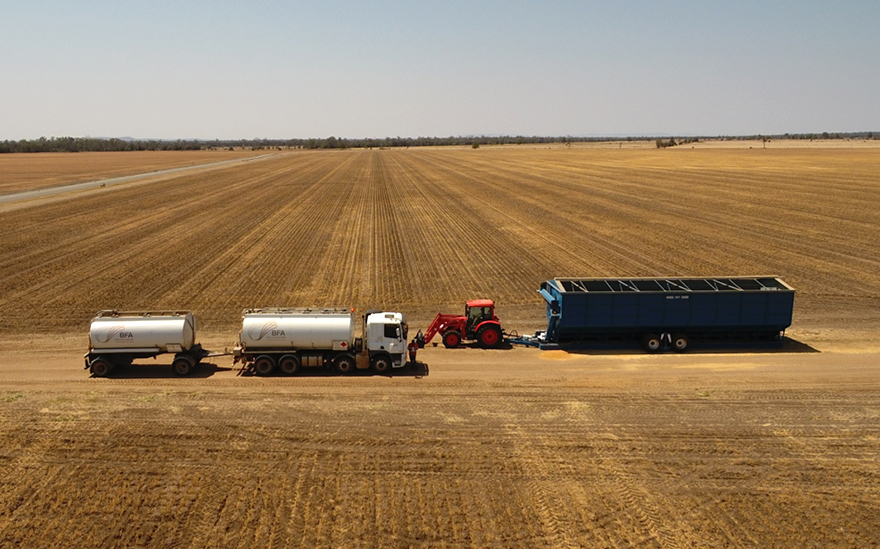Domestic Heating Oil: The Essential Energy Source for Rural Homes and Farms
Home and farm heating oil has long been a reliable energy source, especially in rural areas with limited access to...

Home and farm heating oil has long been a reliable energy source, especially in rural areas with limited access to natural gas. It offers reliable, efficient, and cost-effective heating, ensuring comfort during the cold months. In order to improve the efficiency and durability of their heating oil systems, a growing number of homes and agricultural operators are also using farm fuel additives as technology develops. In this article, we’ll explore how domestic heating oil works, why it remains vital in today’s energy landscape, and how farm fuel additives contribute to improved efficiency and system protection.
What Is Domestic Heating Oil?

Domestic heating oil, often known as kerosene or home heating oil, is a refined petroleum product used to heat homes, water, and agricultural facilities. It is stored in large, secure tanks and supplied by trusted fuel delivery companies. Unlike electricity or gas, heating oil offers independence from the national grid, making it an ideal choice for remote locations.
One of the primary advantages of domestic heating oil is its high energy density, meaning it produces a significant amount of heat from a relatively small volume of fuel. This makes it a cost-efficient option for households and farms that depend on steady warmth during winter.
In the UK, domestic heating oil remains a popular choice due to its availability, flexible delivery options, and compatibility with modern condensing boilers that maximize fuel efficiency.
Why Domestic Heating Oil Is Still Relevant Today

Despite the rise of renewable energy, domestic heating oil remains a crucial source of energy for rural heating. Many properties across the UK lack access to mains gas, making oil heating systems an essential alternative. Because of its versatility, users can store oil safely for later use and purchase it in bulk when prices are low.
Moreover, technological improvements in oil-fired heating systems have significantly enhanced efficiency and reduced emissions. Today’s heating oil systems are cleaner, quieter, and more environmentally responsible than ever before.
Additionally, heating oil provides energy security — homeowners are not dependent on power grids or pipelines that may experience disruptions. With professional installation and proper maintenance, heating oil systems can last for decades, delivering both comfort and value.
The Importance of Quality in Domestic Heating Oil

The quality of heating oil directly impacts the performance of your boiler and heating system. Low-quality or contaminated oil can cause inefficiency, blockages, or even equipment damage. Over time, water, sludge, and other impurities can accumulate in storage tanks, reducing fuel quality and leading to corrosion.
That’s where farm fuel additives come in. These specially formulated additives help maintain fuel purity, prevent microbial growth, and keep systems clean. Whether used in domestic settings or agricultural applications, they ensure your heating system runs at its best year-round.
How Farm Fuel Additives Enhance Heating Oil Performance

Farm fuel additives are chemical agents added to heating oil to improve its stability, efficiency, and overall performance. They are especially valuable for rural homes and farms that store large quantities of oil for extended periods of time.
Here’s how farm fuel additives make a difference:
- Prevent Fuel Degradation: Additives help stabilize heating oil, preventing oxidation and the formation of sludge that can clog filters and pipes.
- Improve Combustion Efficiency: Clean-burning additives enhance flame quality, resulting in improved heat output and reduced fuel consumption.
- Protect Against Corrosion: Additives form a protective layer within tanks and fuel lines, reducing wear and extending the equipment’s lifespan.
- Enhance Cold Flow Properties: During winter, additives prevent wax crystals from forming, thereby helping to maintain smooth fuel flow even in freezing temperatures.
- Reduce Maintenance Costs: By keeping the system clean and efficient, additives lower the need for frequent servicing or part replacement.
When combined with regular system maintenance, these benefits can extend the life of your heating system while improving performance and reliability.
Domestic Heating Oil for Farms and Rural Businesses

For farms and agricultural properties, domestic heating oil serves a purpose beyond just home heating. It also fuels essential farm operations such as crop drying, livestock heating, and machinery maintenance. Rural businesses rely on oil’s consistent and affordable heat supply to maintain productivity throughout the year.
Farmers are increasingly using farm fuel additives not only in heating oil but also in other stored fuels, such as diesel and red diesel. This ensures that all fuel-dependent equipment, from tractors to heating systems, operates efficiently and safely.
Using additives helps prevent contamination, especially when fuel is stored in outdoor tanks exposed to varying temperatures and humidity. This proactive approach helps protect both domestic and agricultural investments.
Energy Efficiency and Environmental Considerations
Some suppliers now offer bio-heating oil blends, which combine traditional heating oil with renewable components derived from plants or waste materials. When enhanced with farm fuel additives, these blends deliver improved combustion, cleaner burning, and better long-term stability.
This evolution in fuel technology enables heating oil users to enjoy reliable warmth while contributing to a more sustainable future.
Tips for Managing Your Domestic Heating Oil Supply

To maximize the lifespan and performance of your heating oil:
- Inspect your tank regularly for leaks or water buildup.
- Schedule professional servicing at least once a year to keep your boiler efficient.
- Use farm fuel additives to prevent fuel degradation and maintain the health of your system.
- Monitor fuel levels and reorder before winter to avoid emergency shortages.
- Select a reputable supplier that offers high-quality oil and expert delivery services.
You can guarantee a seamless and effective heating experience all year long by adhering to these easy guidelines.
The Future of Domestic Heating Oil
The future of domestic heating oil lies in innovation and sustainability. With growing investment in cleaner fuel blends and advanced additives, heating oil continues to evolve as a reliable and environmentally conscious energy source.
Farm fuel additives will continue to be essential in ensuring cleaner combustion, improved fuel stability, and reduced system wear. Together, these advancements are shaping a new era for domestic energy — one that balances comfort, efficiency, and environmental responsibility.


